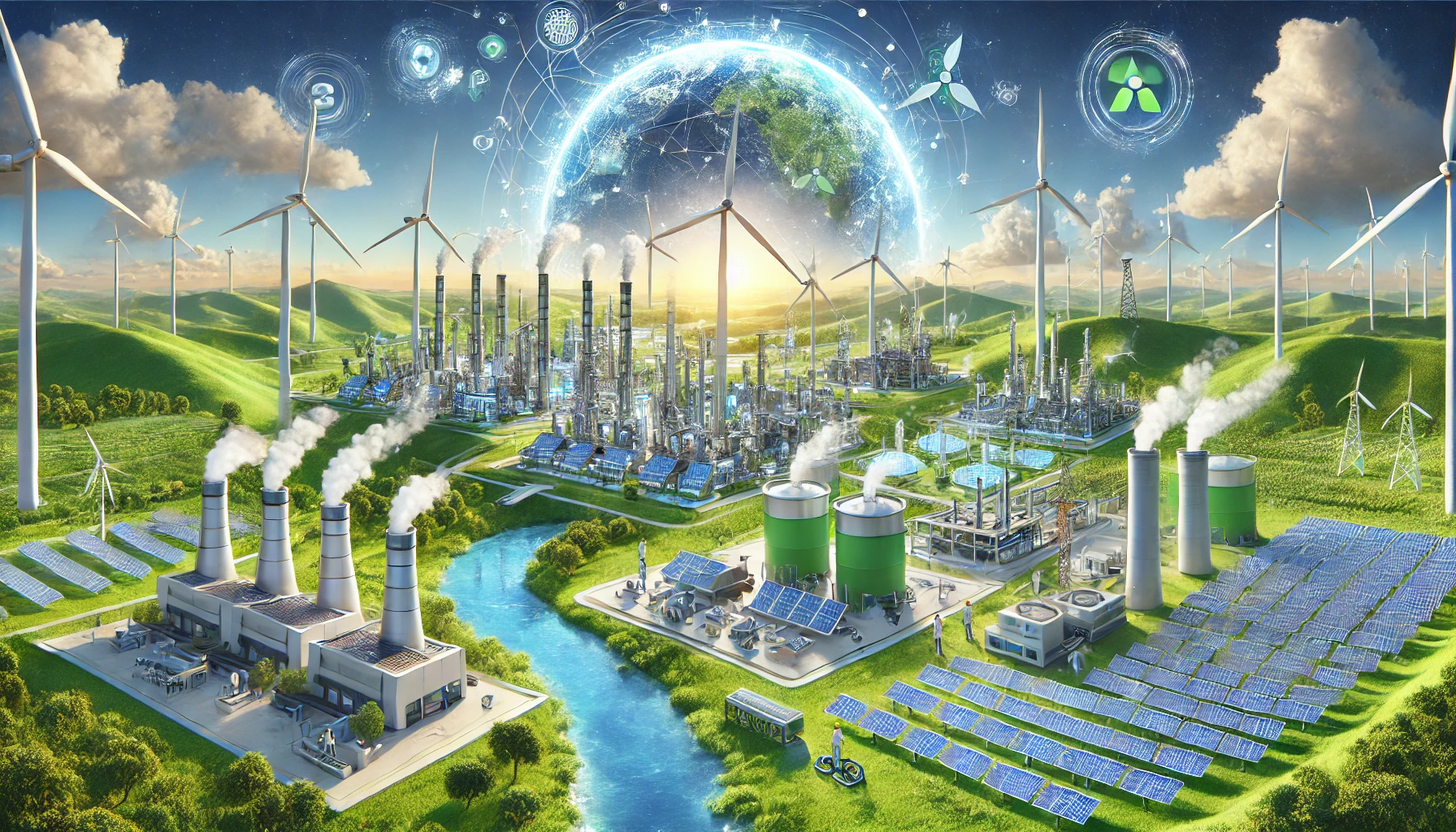Renewable Energy's Role in the Global Climate Transition: Challenges and Opportunities
The OECD report highlights the complexities of the renewable energy ecosystem, emphasizing challenges like supply chain dependencies, skill shortages, and declining innovation while advocating for coordinated policies to enhance resilience, innovation, and workforce development. It underscores the sector's pivotal role in driving economic growth and achieving net-zero goals.

The OECD Directorate for Science, Technology, and Innovation presents a nuanced analysis of the renewable energy industrial ecosystem, illustrating its significant role in achieving global climate goals. The ecosystem spans diverse sectors, from manufacturing to professional services, and is deeply embedded in the value chains required for renewable energy production. Despite the accelerated adoption of renewable technologies worldwide, the study reveals challenges such as supply chain concentration, dependency on critical raw materials, and looming skill shortages that threaten the momentum of the energy transition.
Supply Chain Dependencies and Material Vulnerabilities
The renewable energy ecosystem relies on intricate value chains, extending beyond energy production into industries like machinery, electronics, and engineering. However, increasing concentration in supply chains, especially for critical raw materials such as rare earths, semiconductors, and metals poses significant risks. China dominates the supply of many of these materials, raising concerns about geopolitical and market vulnerabilities. Rare earth elements like neodymium, vital for wind turbines, are highly concentrated, with limited alternatives. The report emphasizes that innovation is key to addressing these dependencies. Advanced manufacturing technologies, material substitutes, and enhanced recycling processes are highlighted as potential solutions to strengthen supply chain resilience and reduce global dependencies.
Innovation Trends: Rising Potential Amid Declines
The analysis points to a worrisome decline in patenting activity across renewable energy technologies, especially in solar photovoltaics, where patents have fallen sharply since the early 2010s. This decline is linked to competitive pressures, with low-cost producers like China displacing traditional innovators in the United States, Germany, and Japan. Despite this, there is a notable rise in innovation in emerging fields like green hydrogen and long-duration energy storage. Public research organizations and young firms remain central to renewable innovation, although their contributions have diminished, possibly due to consolidation in the sector. The study also highlights ongoing innovation in recycling and material substitution, particularly for critical resources such as silicon and nickel, as an essential step in enhancing the sector’s resilience.
The Growing Demand for Skilled Labor
The transition to renewable energy is creating diverse job opportunities, with demand surging for professionals in engineering, project management, and technical trades. Occupations requiring socio-emotional skills, such as teamwork and problem-solving, are also highly sought after, alongside technical expertise and business acumen. The sector’s complexity spans manufacturing, power generation, and professional services, reflecting its broad economic impact. However, skill shortages in key areas like engineering and technical trades pose a significant challenge. Workforce investments in training and reskilling are identified as critical to bridging these gaps, ensuring the availability of skilled workers to meet growing demands. Policies fostering education alignment with industry needs will be central to building a workforce capable of supporting the sector’s growth.
Policy Frameworks for a Resilient Future
Policy interventions are essential to address the challenges in the renewable energy ecosystem. The report underscores the need for coordinated strategies that integrate research and development support, workforce development, and supply chain resilience. Initiatives such as the EU’s Critical Raw Materials Act exemplify how policy can promote sustainability by securing critical resources and enhancing domestic production capabilities. Carbon pricing, regulatory reforms, and direct financial support for renewable energy projects have played a pivotal role in accelerating deployment. However, gaps remain, particularly in supporting manufacturing and professional services, which are crucial for sustaining innovation. Strategic partnerships and international collaborations are emphasized as critical to ensuring global supply chain stability and fostering innovation.
Toward a Net-Zero Future: Opportunities and Challenges
The renewable energy sector is poised to drive economic growth while enabling the global transition to net-zero emissions. Employment in the sector is expanding rapidly, with solar and wind energy technologies leading job creation. Emerging technologies like green hydrogen and smart grids are also opening new avenues for economic and employment growth. The integration of digital tools in renewable energy underscores the importance of IT skills and data management expertise in this evolving landscape. However, realizing the sector’s potential requires addressing systemic vulnerabilities, including declining patent activity, supply chain dependencies, and skill shortages.
The study concludes with a call to action for policymakers, industry leaders, and researchers to adopt a holistic approach to addressing these challenges. The findings highlight the need for robust policies, international cooperation, and sustained investment in innovation and workforce development. By integrating insights from trade, innovation, and labor data, the report provides a comprehensive roadmap for advancing the renewable energy ecosystem. With strategic interventions, the sector can emerge as a cornerstone of a sustainable future, balancing economic growth with environmental stewardship and resilience.
- FIRST PUBLISHED IN:
- Devdiscourse
ALSO READ
Re-Globalizing Renewable Energy: WMO-WTO Report Highlights Trade’s Role in Powering the Net-Zero Transition
ACME Sun Power Secures Major Funding for Renewable Energy Expansion
India Powers Up: Renewable Energy Capacity Set for Major Surge
Odisha's Vision: A Renewable Energy Leader and Investment Hub
Australia and India Forge Historic Renewable Energy Partnership









